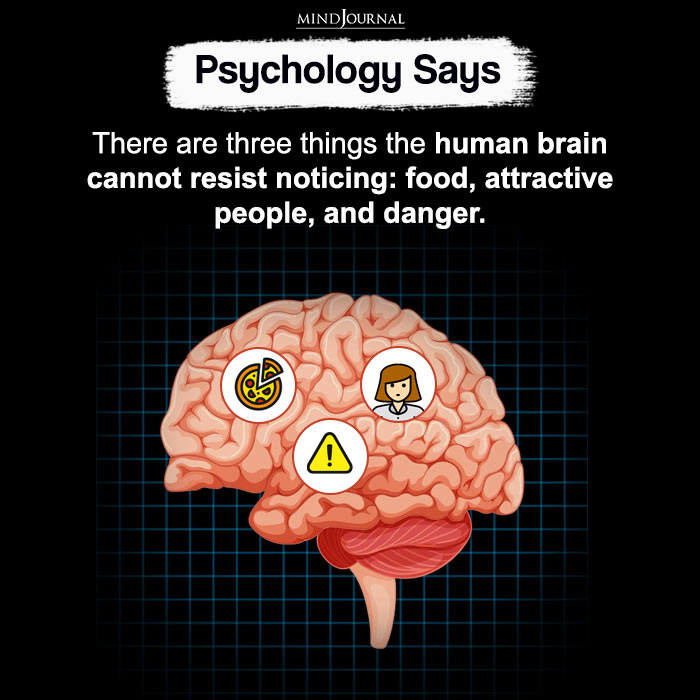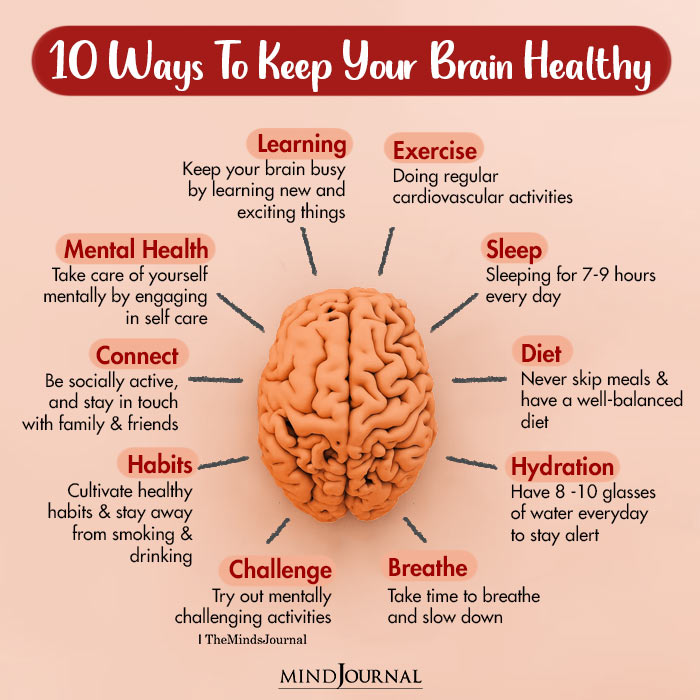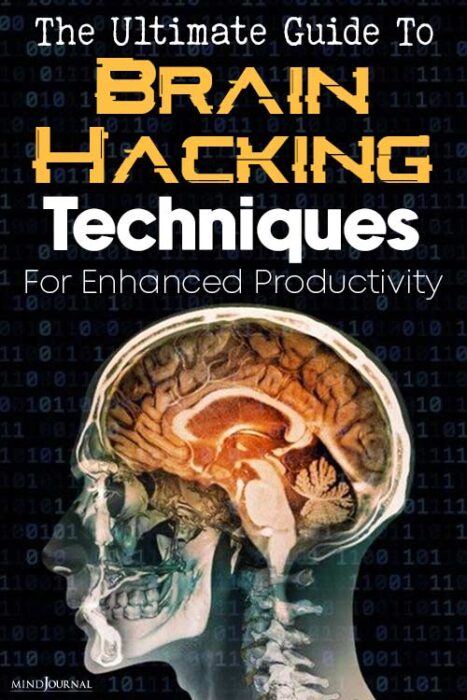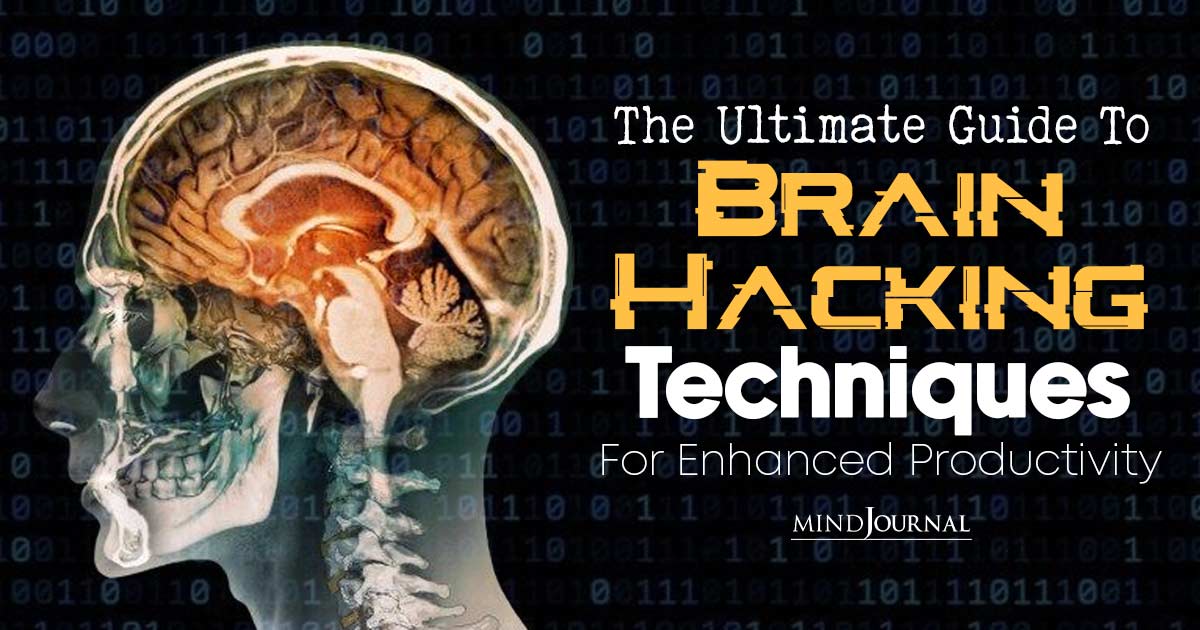Do you ever feel like your brain could use a tune up? With so much information and distractions competing for our attention these days, it can be hard to focus and stay productive. But brain hacking techniques can help you “hack” your brain and rewire it for greater mental performance. Here’s how.
What is brain hacking?
Brain hacking meaning: Brain hacking is a set of tools and strategies that help us make our brain work better.
Your brain runs on autopilot most of the time. Through brain hacking, you can optimize how your brain works and think with more clarity.
Just like we take care of our body by eating healthy food and exercising, brain hacking helps us take care of our brain. This can include things like doing puzzles, playing games, or learning new things.
Brain hacking can also involve using special techniques like meditation or mindfulness to help us focus better and reduce stress. It’s like giving our brain a superpower boost so we can be our best selves and do amazing things!

Brain hacking vs neurohacking
Both neurohacking and brain hacking are terms used to describe techniques and strategies designed to optimize brain function and enhance cognitive abilities. However, there are some differences between the two.
Brain hacking is a broad term that involves natural techniques like meditation, learning, and exercise. Neurohacking is a more specific term that involves using technology, supplements, or other interventions to directly manipulate brain function.
While both approaches aim to improve brain function, neurohacking is a more targeted approach, using advanced technology and interventions, while brain hacking focuses on lifestyle changes and natural techniques.
It’s important to use these techniques with caution and under the guidance of a healthcare professional.
Related: 5 Powerful Mind And Body Hacks For A Limitless Brain
7 Brain hacking techniques
If you want to be more focused, productive and think sharper, then take control of your brain with these 7 effective techniques for hacking your brain that can help you greatly improve your abilities and performance –
1. Meditation
Just 5-10 minutes of meditation daily can increase gray matter in parts of your brain linked to attention, self awareness and memory.
Simply sit quietly and focus your attention on your breath to strengthen your prefrontal cortex – the boss of your brain. This improves focus, decision making and stress management.
2. Exercise daily
Regular exercise boosts a brain hormone called BDNF (brain-derived neurotrophic factor) that strengthens connections between brain cells. It also increases blood flow and oxygen to the brain.
Aim at least 30 minutes of cardio exercises like walking, running or cycling most days to get the biggest brain benefit.
3. Sleep
Getting enough sleep, especially deep slow wave sleep, helps consolidate memories and recharge your brain. It also helps boost your creativity and cognitive function. Try to stick to a consistent sleep schedule and aim for 7-9 hours of quality sleep at night. Make sleep a high priority for your brain.
4. Supplements
Supplements like Omega-3 fatty acids, vitamin B12, vitamin D and magnesium can help boost cognition and brain health when taken under professional guidance. Check with your doctor before starting any supplements.
5. Reduce stress
Stress has been shown to literally shrink parts of your brain over time by damaging neurons and connections. Practicing meditation, yoga, journaling and deep breathing daily can reverse this stress-induced brain atrophy.
6. Practice intermittent fasting
Limiting your eating times to certain hours of the day can trigger growth of new neurons and boost BDNF, which promotes brain health. Restrict your eating times to a 8-10 hour period daily to improve learning and memory.
Related: What Is Intermittent Fasting And How It Can Help You Lose Weight
7. Challenge your brain
Brain training with activities like learning an instrument, language or skill, solving puzzles or practicing a sport can form new neural pathways and help retain cognitive function as you age.
Benefits of brain hacking techniques
Are there any advantages to hacking your brain? Well, brain hacking can have many benefits for our brain and our overall well-being. Here are some examples:
1. Improving memory
Brain hacking can help us remember things better, like important information for school or work.
2. Reducing stress
Some brain hacking strategies, like meditation or mindfulness, can help us feel calmer and less stressed. Being relaxed is one of the most common brain hacking examples.
3. Boosting creativity
Brain hacking can help us come up with new and innovative ideas. Creativity and inventiveness are other common brain hacking examples.
Related: Your Brain Has A DELETE Button And Here’s How To Use It
4. Increasing focus
Brain hacking can help us concentrate better, which is important for things like studying or working on a project.
5. Improving mood
Hacking our brain can help us feel happier and more positive.
6. Enhancing overall brain function
By taking care of our brain and challenging it with new experiences, we can improve our cognitive abilities and overall brain function.
Remember, brain hacking is not a magic solution that will instantly make you a genius. It’s like exercising your brain, which takes time and consistency. But with patience and practice, you can unlock your brain’s full potential and achieve great things!

How to stop brain hacking
Brain hacking helps us optimize our brain’s performance. However, if you feel like you’re relying too much on these techniques or they’re causing you stress or anxiety, it’s important to take a break and reassess your approach. Here are some tips on how to stop brain hacking:
1. Take a break
If you feel like you’re constantly trying to optimize your brain’s performance, take a step back and give yourself a break. It’s important to give your brain time to rest and recharge.
2. Listen to your body
If a particular brain hacking technique is causing you stress or anxiety, listen to your body and stop using it. Your well-being is more important than any potential benefits.
3. Focus on balance
Instead of focusing solely on brain hacking techniques, try to find a balance between taking care of your brain and taking care of your overall well-being. This can include things like exercise, spending time with loved ones, and practicing self-care.
4. Seek professional help
If you feel like brain hacking is becoming an obsession or is negatively impacting your mental health, consider seeking help from a mental health professional.
Remember, brain hacking can be helpful tools for improving cognitive function and overall well-being, but they are not a substitute for taking care of your overall health. It’s important to find a balance that works for you and listen to your body’s needs.
Related: A Male Brain V/s A Female Brain: 13 Interesting Differences
The power of unlocking your brain
Brain hacking techniques can help us unlock our brain’s full potential and achieve our goals. From meditation and exercise to cutting-edge neurohacking interventions, there are many ways to optimize brain function.
By experimenting with different techniques and finding what works best for us, we can enhance our cognitive abilities, improve our memory, and boost our creativity.
With consistent practice, brain hacking can train your brain to work more efficiently, letting you get more done in less time with less effort. So ditch the distractions and get started trying one or more of these strategies today to optimize your mental performance!









Leave a Reply
You must be logged in to post a comment.